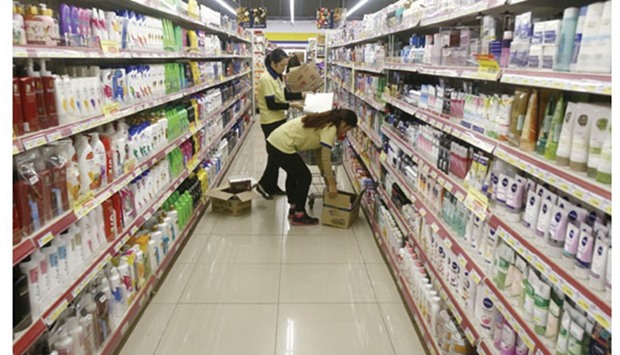Vietnam’s economic growth quickened in the fourth quarter helped by rising industrial output and record- high foreign investment.
Gross domestic product rose 7.01% in the fourth quarter from a year earlier, quickening from a revised 6.87% gain in the three months through September, according to data released by the General Statistics Office in Hanoi yesterday. In 2015, the economy grew 6.68%, beating the government’s 6.2% target. That compares with a median estimate of 6.6% in a Bloomberg survey.
Vietnam’s economic growth “has gained momentum gradually and is now being supported both by exports of foreign-invested enterprises and domestic demand,” Jonathan Dunn, the International Monetary Fund’s resident representative in Vietnam said in a statement released December 5 in Hanoi.
The State Bank of Vietnam weakened the dong three times this year to spur exports after China depreciated the yuan, dragging exchange rates lower across Asia. Vietnam’s economic growth in 2015 may be the fastest among six major Southeast Asian countries tracked by the Asian Development Bank, the ADB said in a recent report.
Exports rose 8.1% in the 12 months through December from a year earlier to $162.4bn, with 71% coming from foreign companies. Exports miss government target of 10% growth for 2015 “due to dropping commodities prices in global markets”: Le Thi Minh Thuy, head of the GSO’s trade department.
Imports climbed 12% from a year earlier for the same period. December trade deficit was $300mn, from $263mn surplus in November. Credit growth at 17.2% as of Dec 21 vs start-2015, according to central bank data released December 24.
Bank lending may rise 18% at end-2015 compared to year earlier. Retail sales gained 9.5% in Jan.-Dec. from year earlier. Industrial production jumped 9.8% in same period from year earlier. Manufacturing rose 10.6% in same period from year earlier.
Disbursed foreign investment surged 17.4% to a record-high of $14.5bn in January-December from a year earlier, and pledged foreign investment climbed 12.5%.
The central bank weakened the dong’s reference rate by 1% in August, and widened the currency’s trading band. The country is also benefiting from cheaper energy costs as a low inflation rate aids domestic demand.
The government will focus on steps to bolster businesses, particularly the private sector, as part of its attempt to increase the country’s productivity in 2016-2020, Prime Minister Nguyen Tan Dung said December 5. Vietnam’s legislature last month passed a 2016 GDP target of 6.7%.
The economy will face challenges in 2016 include falling global oil prices and rising pressure on the dong, said Nguyen Bich Lam, head of General Statistics Office, speaking at a briefing in Hanoi yesterday.

Employees load products onto shelves at a Fivimart supermarket in Hanoi yesterday. Vietnam reported that its economy grew 6.68% in 2015, the fastest pace in five years, helped by an expanding industrial sector and record foreign direct investment.
